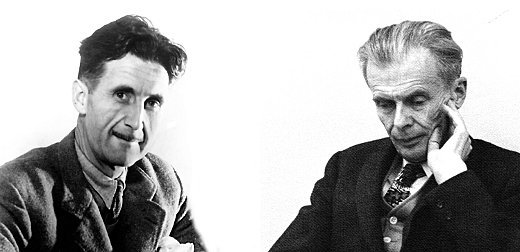The Brave New World vs 1984 debate
Aldous Huxley’s Brave New World is a touchstone for much commentary on contemporary bioethical debates, from moral enhancement to genetic engineering to assisted reproduction. Published in 1933, its vision now seems prophetic – at least in some circles. The rival prophecy of a totalitarian future is George Orwell’s 1984, which projects the logic of Stalinism into the distant future.

Aldous Huxley’s Brave New World is a touchstone for much commentary on contemporary bioethical debates, from moral enhancement to genetic engineering to assisted reproduction. Published in 1933, its vision now seems prophetic – at least in some circles. The rival prophecy of a totalitarian future is George Orwell’s 1984, which projects the logic of Stalinism into the distant future.
A fascinating letter recently resurfaced on the Letters of Note website in which Huxley explains to Orwell why his vision of the future is more likely. Writing in 1949, not long before Orwell’s death, Huxley says:
“Whether in actual fact the policy of the boot-on-the-face can go on indefinitely seems doubtful. My own belief is that the ruling oligarchy will find less arduous and wasteful ways of governing and of satisfying its lust for power, and these ways will resemble those which I described in Brave New World…
“Within the next generation I believe that the world’s rulers will discover that infant conditioning and narco-hypnosis are more efficient, as instruments of government, than clubs and prisons, and that the lust for power can be just as completely satisfied by suggesting people into loving their servitude as by flogging and kicking them into obedience. In other words, I feel that the nightmare of Nineteen Eighty-Four is destined to modulate into the nightmare of a world having more resemblance to that which I imagined in Brave New World. The change will be brought about as a result of a felt need for increased efficiency.”
Michael Cook
moral enhancement
politics and bioethics
- Queensland legalises ‘assisted dying’ - September 19, 2021
- Is abortion a global public health emergency? - April 11, 2021
- Dutch doctors cleared to euthanise dementia patients who have advance directives - November 22, 2020
